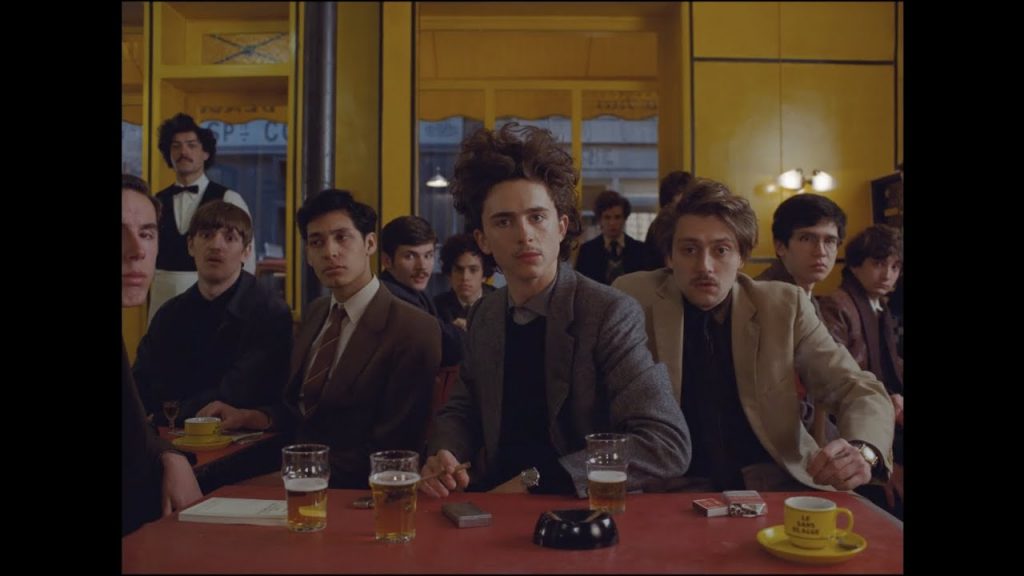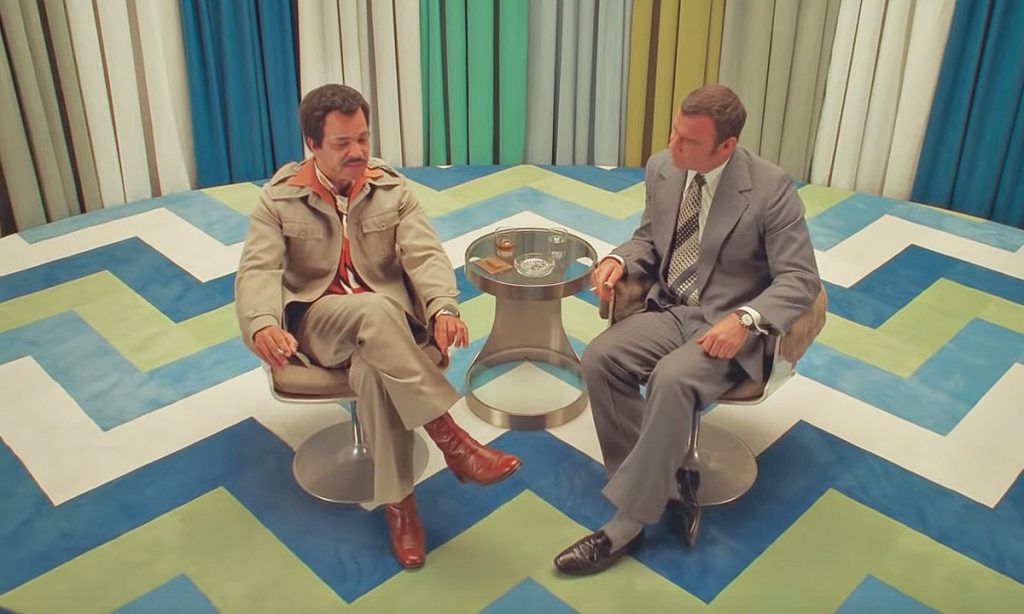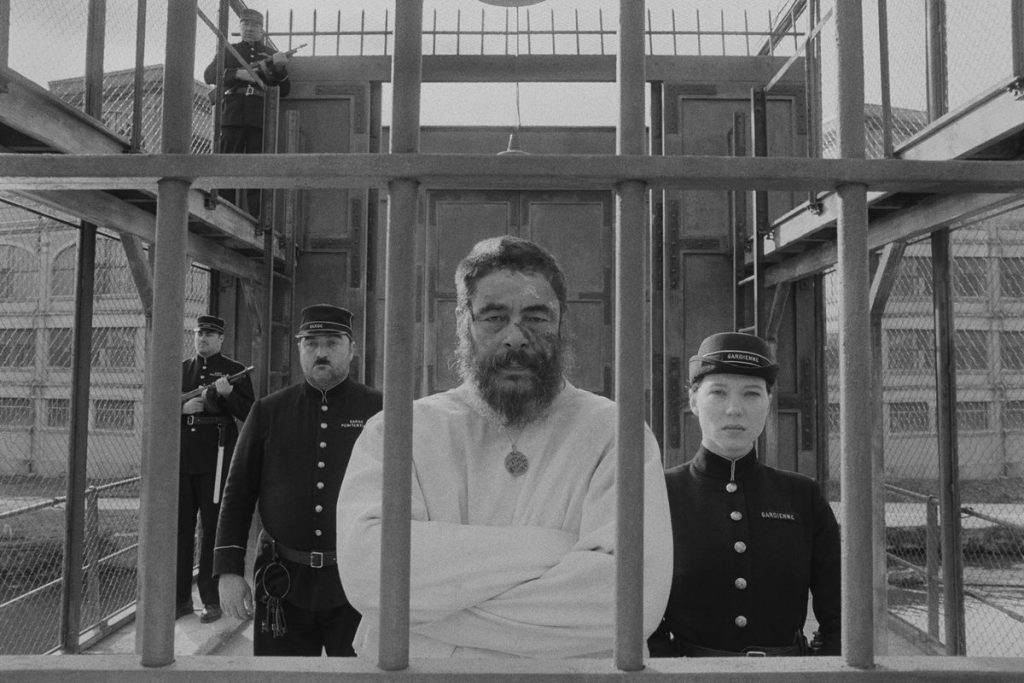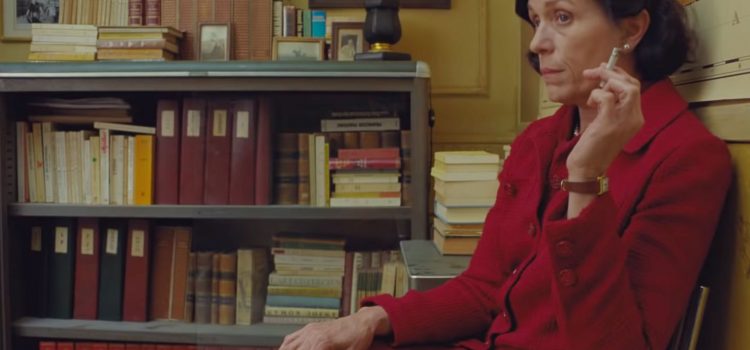By Alex McPherson
Wes Anderson’s “The French Dispatch” is an experience as eye-popping as it is utterly overwhelming.
“The French Dispatch,” largely inspired by writers at The New Yorker magazine, including James Thurber, James Baldwin, Mavis Gallant, and others this Gen Z critic has never heard of, recounts the experiences of four writers at the French Dispatch of the Liberty, Kansas, Evening Sun newspaper based in a fictional French town. These writings take place within “Ennui-sur-Blasé” (Boredom-on-Blasé), which proves to be far from boring. The editor-in-chief, a strict yet sentimental chap named Arthur Howitzer Jr. (Bill Murray), has just died, leaving behind one final issue of the paper filled with eccentric happenings and colorful characters.
Anderson’s film is structured like an anthology narrated by the author of each “article,” opening with a biography of Howitzer and ending with his obituary. We get a scene-setter from a beret-wearing cyclist, Herbsaint Sazerac (Owen Wilson). Sazerac sets the scene, showcasing a French town packed with people of all sorts, as well as hundreds of rats and cats. We then delve into an arts report by JKL Berenson (Tilda Swinton) as she gives a PowerPoint presentation on an (in)famous incarcerated painter named Moses Rosenthaler (Benicio Del Toro), his muse/prison guard Simone (Léa Seydoux), and a greedy art collector named Julien Cadazio (Adrien Brody) wanting to capitalize on Moses’ works.
Afterwards, viewers are launched into a rather intimate profile, written by Lucinda Krementz (Frances McDormand), of a young, insecure revolutionary named Zeffirelli (Timothée Chalamet), who amid the student uprising in 1968 engages in high-stakes chess matches with authority figures. “The French Dispatch” saves the best for last, however, as food columnist Roebuck Wright (Jeffrey Wright) — a gay Black man — discusses on a talk show a profile he wrote of Lt. Nescafier (Stephen Park), an esteemed chef of a local police chief The Commissaire (Mathieu Amalric). Both Wright and Nescafier are dragged into a life-or-death situation.

If this sounds like a lot to digest, you’d be correct. There’s so much movie here that it’s hard not to be mentally swamped. This lessens the impact of individual vignettes that are, by themselves, quite profound. Nevertheless, “The French Dispatch” provides a nonstop barrage of aesthetically pleasing eye candy that holds attention even as the overstuffed whole threatens to undermine the compelling characters on display.
Ennui-sur-Blasé is a meticulously crafted setting, a cinematic dollhouse that refuses to be categorized in simple terms. In typical Andersonian fashion, everything moves like a clockwork machine coming to life. A quiet neighborhood suddenly fills with activity upon the rising sun, sets transition between one another as characters walk from room to room, and elegantly symmetrical shot compositions are once again used in full force. Interestingly, “The French Dispatch” also alternates between black-and-white and color photography shot-to-shot — perhaps representing timeless bursts of humanity that transcend the written word.
Each section utilizes Anderson’s style in different ways, paying homage to French filmmakers like Jacques Tati and François Truffaut, as well as cartoonists from The New Yorker. That being said, “The French Dispatch” knows when to subvert its rules to emphasize the darker elements of this charming, albeit troubled dreamworld, particularly concerning the existential threats that tinge Wright’s perspective with sadness and dread. For brief moments, the madcap fades away to zoom in on true, deeply felt emotions. Alexandre Desplat’s score perfectly accompanies the action, eliciting joy and melancholy.
Of course, there’s an outstanding amount of acting talent here (including some cameos I won’t spoil), and everyone brings their A-game, even if we only spend a few minutes with them. Murray, Del Toro, and Wright are standouts — lending their characters a sense of three-dimensionality that’s all the more meaningful in such cartoonish locations. Although some performances are more effective than others — Chalamet is somewhat one-note, for example — they’re perfect vessels to deliver Anderson’s signature playful, occasionally irreverent dialogue that seems even more obsessive than usual.
Although some might say “The French Dispatch” is style over substance, Anderson’s film grows more meaningful the more I think about it, stretching my Film Studies muscles to approach coherent conclusions. We see a literal tortured artist being exploited for profit, an aging journalist mourning her youth, childish revolutionaries blinded by idealism, and outsiders seeking comfort in an alienating world. While the second portion featuring McDormand and Chalamet comes across as a bit precious and rushed in places, there’s rarely a dull moment. Despite the sections’ differences, they’re thematically bonded through exploring concepts of belonging, passion, storytelling, and the creation of art itself with a whimsical edge that likely benefits from repeat viewings.
Additionally, the notion of this newspaper traveling all the way back to corn-covered Kansas holds its own significance. Stories should be universal, after all, and “The French Dispatch” underlines how this form of humanistic journalism shouldn’t be discarded amid the changing media climate. As a tribute to artists of all kinds and a wistful thesis on the future of print, this is a film that deserves to be mulled over, and I’m eager to research the people who influenced it. Tighter pacing and more focus could have made it one of Anderson’s best, but “The French Dispatch” is most assuredly worth opening up.

“The French Dispatch” is a 2021 comedy-drama directed by Wes Anderson and starring Bill Murray, Benicio del Toro, Lea Seydoux, Timothee Chalamet, Frances McDormand, Tilda Swinton, Adrien Brody, Jeffrey Wright, Owen Wilson and Elisabeth Moss. It’s run time is 1 hour, 48 minutes and is rated R for graphic nudity, some sexual references and language. In theaters Oct. 29. Alex’s Grade: B+.

Alex McPherson is an unabashed pop culture nerd and a member of the St. Louis Film Critics Association.

